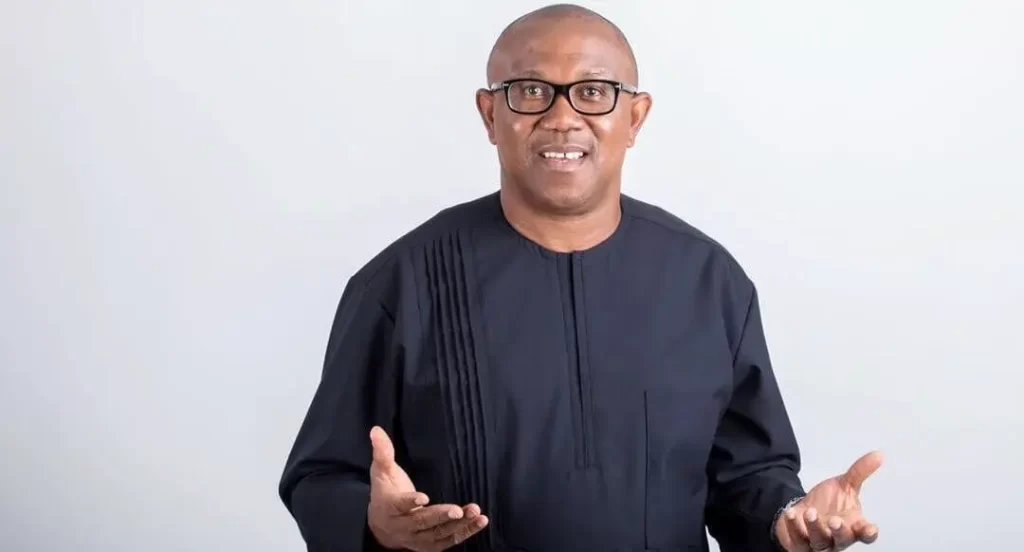A survey has conducted by the We2Geda Foundation sampling registered voters indicates that candidate Peter Obi is prefered to lead Nigeria after President Muhamud Buhari signs out next year.
The researcher surveyed 15,438 eligible voters in the 36 states and the Federal Capital Territory (FCT), randomising direct phone calls in local languages for real representation.
Respondents from across Nigeria’s 774 councils were stratified proportionally by key demographics like rural versus urban and gender against age.
The ratio, the investigator noted, is consistent with the voter register published by the Independent National Electoral Commission (INEC).
For instance, as Abia makes 2.3 per cent of the national voter register, it also made up 2.3 per cent of respondents in the randomised poll. The same process applied in every state, with 100 per cent randomnisation.
Nigerians were asked structured questions to assess their opinions and preparations for the 2023 general elections.
Questions include: “Are you planning to vote? Have you picked up your PVC? What do you think are the top three issues/challenges you face in Nigeria?
How important are the 2023 elections to you? Who and which party will you vote for in 2023?”
In addition, the survey uncovered the top issues deciding voters’ choices in the coming elections, including the need to tackle insecurity (42 per cent), corruption (18 per cent), jobs (nine per cent) and education (eight per cent) likely related to the ongoing Academic Staff Union of Universities (ASUU) strike.
Citizens, aged between 26 and 40 years of age and those between 41 and 50, constituted the highest number of respondents, with the latter higher by a slim margin.
The result showed a clear lead for the Labour Party (LP) presidential flag-bearer, Peter Obi, with 51 per cent voting for him as their preferred candidate if the presidential election holds today.
Tweny-five per cent went for Atiku Abubakar of the Peoples Democratic Party (PDP), while Bola Tinubu of the All Progressives Congress (APC) ranked third with 19 per cent.
Further analysis indicates that Obi remains a consistent favourite in the four major geopolitical zones, including North-Central, South-South, South-West and South-East, while Alhaji Atiku Abubakar was the poll leader in North-East and North-West zones.
While these poll results show some significant trends, it is important to note that they do not include respondents, who were undecided or did not reveal their preferred candidates.
This group constitutes about one-third of Nigerians We2Geda attempted to sample.
These swing voters could ultimately decide which candidate could emerge Nigeria’s President next year. All responses were independent and based on the respondents’ will.
